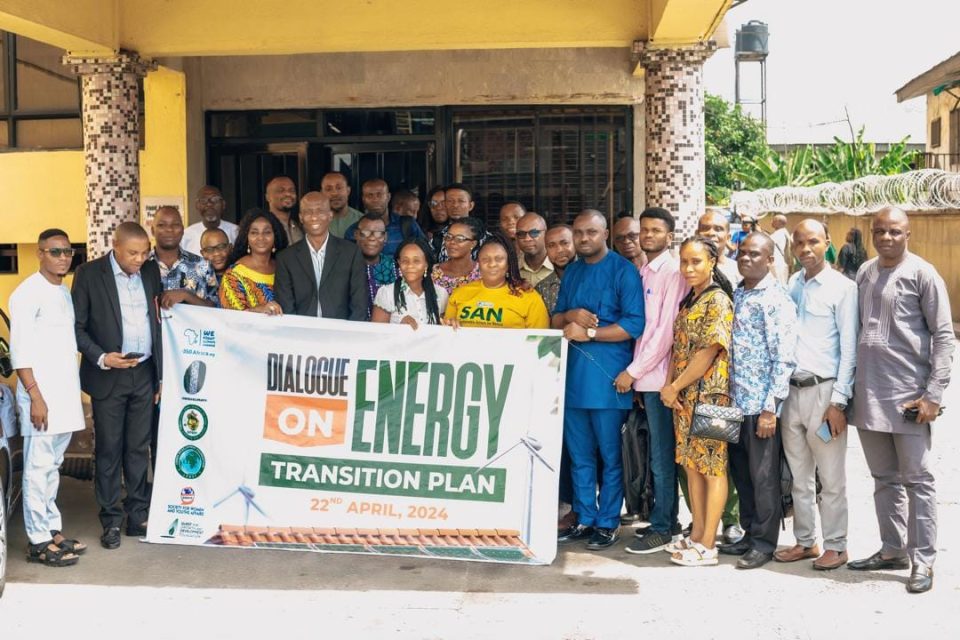By: Felix Ikpotor
Sequel to the projection by the Nigerian Government to fully move away from fossil fuel to renewable energy by the year 2060 through the Energy Transition Plan, ETP, some civil society organisations have demanded a full-scale domestication of the plan to make it realisable.
The civil society organisations who stated this at a Roundtable Dialogue on Energy Transition in the Niger Delta, held in Port Harcourt, insisted that the policy should not only be left with the Federal Government , but the states and local communities should be carried along.
Leading the argument on domestication of the ETP, Executive Director, Lekeh Development Foundation, Comrade Friday Nbani, said although the policy is a welcome development for the Niger Delta people, but the locals should be involved since they are directly impacted by the policy.
“It’s a welcome development especially as people who are suffering from the direct impact of climate change and fossil fuel on our environment especially on our waters and plants. Whave to look at how favourable the document is to us and how backed-up it is with the Nigerian laws and how workable it is for the Niger Delta people to achieve net-zero.
“We are saying that the policy should not be a national thing alone but the states and local governments, community should be carried along and even the common people should be involved,” he said.
Nbani called for increased awareness on the implications of the policy on the Niger Delta people.
“People should be aware of the ETP which is what the Niger Delta needs because they are the ones suffering from the fossil fuels.
“Capacity building for local youths and women should be designed into the policy, then the $410bn should be released gradually into the flow of energy transition.
“Also, most of the schools should begin to adopt renewable energy in their curriculum especially at under-graduate and post-graduate levels as it is done in other countries,” Nbani said.
Also speaking, Smith Nwokocha, Coordinator, Quest for Growth and Development Foundation, said the policy should be segmented into short term and long-term action plans and for states to play active part in its implementation.
“Participants at this dialogue are calling for the domestication of the ETP, that it shouldn’t be only on the exclusive list for Federal Government to take decision on, it should be brought home for each state to take actions on and again, it should be segmented to become an immediate action, short-term action, medium-term action and long-term action, with that we can capture all areas that are missed in the process and that will also give them opportunity to provide solution for gas that might occur.
“It’s also important that we do more awareness and have more stakeholders’ engagement and getting the private sector involved in the process because they are going to do more investment in the ETP and also fund the process, we can’t rely on the Federal Government all the time because they are more on the policy area so we need the private sector to come in to drive the policy as well as having the academia to do more research,” he said.
Nwokocha explained that the implication of moving from fossil fuels to renewable energy is that the current heat waves would reduce.
” If we don’t move, the high level of pollution might hit 20 degrees which the world is avoiding and even at this level, we see the high heat waves, flooding and black soot especially here in Port Harcourt, so if we don’t move from fossil fuels that position will keep increasing and we’ll keep experiencing worst situations that’s why we are emphasizing on gradual movement into renewable energy that’s friendlier to our environment,” he stated.
While giving an overview of the ETP, Dr. Gbenemene Kpai, Senior Lecturer, Department of Sociology , University of Port Harcourt noted that the policy is a laudable one especially moving the economy of Nigeria from net-zero to renewable energy. He however, said the challenge is that within the Nigerian environment where forty percent of the population is living below poverty line, it would be very difficult to implement since the transition plan requires much funding and public reorientation.

